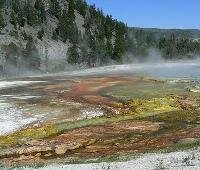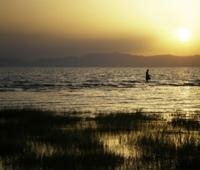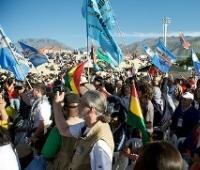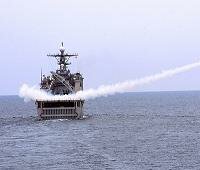Selling Nature to Save Nature, and Ourselves
Issues:Climate change, Competition over resources, Marginalisation
Avoiding the coming catastrophic nexus of climate change, food, water and energy shortages, along with worsening poverty, requires a global technological overhaul involving investments of 1.9 trillion dollars each year for the next 40 years, said experts from the U.N. Department of Economic and Social Affairs (UN-DESA) in Geneva Tuesday.
"The need for a technological revolution is both a development and existential imperative for civilisation," said Rob Vos, lead author of a new report, "The Great Green Technological Transformation".
Article source: Terraviva
Image source: Paul Keller
Read more »Posted on 6/07/11
Conflict Minerals in the Democratic Republic of the Congo: Aligning Trade and Security Interventions
Issues:Competition over resources, Global militarisation
Mineral resources have played a crucial role in fuelling protracted armed conflict in the east of the Democratic Republic of the Congo (DRC). This Policy Paper examines the the prospects for and interactions between various trade- and security-related initiatives that are aimed at demilitarizing the supply chains of key minerals. It also describes the changing context in which such initiatives operate. Finally, it offers policy recommendations for how the Congolese Government and international actors can coordinate and strengthen their responses in order to break resource–conflict links in eastern DRC.
Article source: SIPRI
Image source: Tim Pearce, Los Gatos
Read more »Posted on 6/07/11
Water Conflict: Violence Erupts Along Ethiopia-Kenya Water-stressed Border
Issue:Competition over resources
In a small village along the waters of Lake Turkana in northwestern Kenya, two fishermen were murdered last month as they were putting out their nets.
A cascade of retaliatory violence between the Kenyan Turkana and Ethiopian Daasanach (sometimes called Merille) has led to the deaths of at least four Ethiopians and 20 Kenyans ethnic groups, though some Kenyan government officials place the toll as high as 69, according to the Kenya-based Daily Nation. Though the fighting has been localized, it has put pressure on both nations to deal with strife between nomadic groups who are competing for diminishing resources.
Image source: Aocrone
Article source: Circle of Blue
Read more »Posted on 1/07/11
A New Road for Preventative Action
Issues:Climate change, Competition over resources, Global militarisation, Marginalisation
A gap continues to exist between the international community’s rhetoric about conflict prevention and its responsibility to protect people from severe human rights violations. The record of human misery caused by violent conflict is testimony to the chronic lack of political will to respond collectively to newand emerging threats to peace. The ineffectiveness of many global efforts at preventive diplomacy is evidence that traditional diplomatic approaches, including the use of force, simply may not work.
Article source: East West Institute
Image source: AfghanistanMatters
Read more »Posted on 29/06/11
Global Climate Change Vulnerability and the Risk of Conflict
Issue:Climate change
In a study from the Center for Sustainable Development at Uppsala University in Sweden titled “Climate Change and the Risk of Violent Conflicts in Southern Africa,” authors Ashok Swain, Ranjula Bali Swain, Anders Themnér, and Florian Krampe examine the potential for climate change and variability to act as a “threat multiplier” in the Zambezi River Basin. The report argues that “socio-economic and political problems are disproportionately multiplied by climate change/variability.” A reliance on agriculture, poor governance, weak institutions, polarized social identities, and economic challenges in the region are issues that may combine with climate change to increase the potential for conflict. Specifically, the report concludes that the Matableleland-North Province in Zimbabwe and Zambezia Province in Mozambique are the areas in the region most likely to experience climate-induced conflicts in the near future.
Article source: The New Security Beat
Image source: The City Project
Read more »Posted on 29/06/11
Drones Don't Allow Hit and Run
Issues:Global militarisation, Marginalisation
If You Use Drones You Must Confirm and Report Who They Killed, Says Legal Team.
International lawyers have identified an existing but previously unacknowledged requirement in law for those who use or authorise the use of drone strikes to record and announce who has been killed and injured in each attack.
A new report, 'Drone Attacks, International Law, and the Recording of Civilian Casualties of Armed Conflict', is published on 23 June 2011 by London-based think tank Oxford Research Group.
Article source: Oxford Research Group
Image source: Official U.S. Navy Imagery
Read more »Posted on 23/06/11









